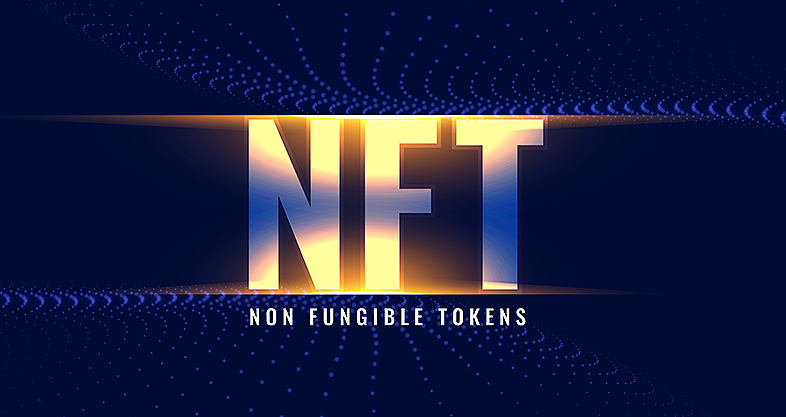share
With the relentless expansion of the blockchain and Web3 technology, it’s not difficult to predict that a brand-new technology, blockchain, or token is around the corner. One of the recent phenomena is a new form of tokens that promises to take Web3 to another level.
Some call it NFT 2.0, while others know it as a Soulbound token. If you’ve ever had any experience with World of Warcraft, then the name surely sounds familiar because Soulbound items were rare in-game assets that could not be traded or transferred to others. Now, they’re about to enter the realm of reality.
Naturally, you may wonder, what are soulbound tokens? How can you use them? And how are they any different from NFTs? Let’s find out.
What Are Soul Bound Tokens?
The phrase “soulbound” comes from multiplayer online games. Some treasured in-game collectibles that are extremely potent or need an incredible effort cannot be exchanged or transferred to others and are instead bound to a player’s “soul.”
The same is true with soulbound NFTs, which serve as a badge or proof of ownership for the person holding the token. They have authenticity that can be checked on the blockchain since they are immutable and cannot be transferred.
Early online authentication relied on basic email logins and passwords kept on separate servers. With the advent of “Web 2.0,” this approach has developed to permit access to several apps and sites with just one credential, including a profile on Facebook or Google.
Those looking for the next version of decentralization believe in using SBTs for ID verification.

What Is an Example of a Soulbound Token?
While we are yet to see a real-life application of a soulbound token, there are already many use cases listed for this asset. Here’s how soulbound tokens work:
Artworks
By tying soulbound tokens to their creative identity, artists may stay clear of liars and frauds who sell NFT collections while posing as well-known artists. While blockchain integration allows purchasers to monitor the creation date of a given item, SBTs could permit them to track its social pedigree.
An artist may, for example, generate an exchangeable nonfungible token (NFT) from his or her soul that allows customers to identify their artwork by the amount of soulbound tokens it has, demonstrating the validity of the NFT. As a consequence, Souls could create a fully verifiable staking system and establish a reputation based on an item’s origin and scarcity.
Spam Detection
The misuse of bots on social media is proving to be a significant problem since they are increasingly being used to sway public opinion, disseminate false information, and carry out scams that con people into providing sensitive data or account credentials to criminals.
The adoption of soulbound tokens might lead to the development of a social media network that is genuinely “bot-free” and requires users to authenticate their online identities using tools like ENS. By forcing people to link their online personas to their accounts, social media platforms can prevent bots from using their platforms.
Gaming Assets
As said in the beginning, a soulbound token is originally rooted in video games like World of Warcraft. It can be an achievement-based item that can be only acquired through completing different missions. It’s not something that gamers can buy easily on the marketplace because it is non-transferable.
As the crypto gaming industry develops, there will be plenty of debate about using NFTs for in-game assets so that users would have complete control over them and sell, buy, or exchange them on public markets.
Credit Scoring
DeFi’s basic principle is that it enables those who, like many communities throughout the world, are unable to count on exchanges and banking institutions.
Enhancing the effectiveness and accuracy of credit rating through an impartial approach is one of the applications for soulbound tokens. Right now, those with less money and minorities who may not have access to standard credit ratings tend to be victims of discrimination due to credit scores.
DeFi systems may be able to provide uncollateralized loans to a larger spectrum of people if they allow users to use Soulbound tokens to demonstrate a record of payments and liabilities. This might minimize racial prejudice in rating credit and improve the fairness and effectiveness of the procedure.

Financial Documents
Another application is perhaps a safe digital wallet that holds your identification, credit report, and banking details and enables banks to rapidly conduct business with their clients. Even a well-known cryptocurrency exchange, Binance, has stated that it’ll offer Soulbound tokens to members as a kind of credential.
Medical Records
Not every Soulbound token will have monetary or official applications. A soulbound token may include the medical background, details of special memberships, a list of awards, etc., of its owner.
Academic Certifications
One vital application for Soulbound tokens may soon be in the field of academic certifications. Employers might check a potential employee’s Soul Wallet to see if they are currently in school or if they have any credentials. Even official identity could be able to function as a Soulbound token. Consider an electronic perpetual passport that authorities might update when people travel and seek visas.

What is the Difference Between Soulbound and NFT?
Businesses like Apple have created original digital artwork using NFTs, and DAOs offer access to web3 tools via NFTs. NFTs have also been utilized by clothing brands to offer virtual clothing. There are some common ground and major distinctions between the applications of NFTs and Soulbound Tokens. Here are the differences:
Transfer
In contrast to Soulbound tokens, NTFs can be transferred. SBTs are virtual tokens that store non-transferable data about a particular thing, whereas NFTs are virtual badges that prove ownership.
Value
Because ownership may be bought and transferred to another individual inside the system, NFTs have financial value. But that’s not the case with a soulbound token. Rather, SBTs are tools that make it easier to handle data throughout the system and let users establish a track record with Web3.

Blockchain
Another distinction is that though SBTs are kept on private blockchain technology, NFTs are held on the Ethereum blockchain. As a result, soulbound tokens offer more privacy and provide better transparency.
Asset Type
Last but not least, SBTs relate to tangible assets, whereas NFTs are utilized to reflect virtual valuables. As a result, soulbound tokens reflect tangible things like real estate or vehicles, NFTs are popular among artists and gamers who purchase in-game assets.
Pros & Cons of Soulbound Tokens
Now that we’ve talked about the applications of Soulbound tokens and how they compare against NFTs, it’s time for a reality check. Let’s look at the upsides and downsides of a soulbound token.
An SBT can be useful for:
- Recruiting businesses seeking someone with the necessary qualifications for a position.
- Enhancements on DAO voting procedures.
- DeFi lending. The foundation of the traditional finance system is credit. Some SBTs might show a person’s or organization’s capacity to repay a loan instead of simply relying on credit ratings.
- Improving the trust infrastructure, which will increase the viability of web3’s decentralized base.
Here are also some downsides of SBTs:
- The chance that too much personal data may be disclosed about a person Users may choose to keep certain information about their work history (including any merits) secret, but if it is published on SBTs, anybody with access can see it.
- When a requirement arises, the non-transferrable characteristic might be problematic.
- Security and resilience to attacks can’t yet be guaranteed; they might not be foolproof after all. Nearly all of a person’s information is provided by SBT, including employment history, affiliations, professional background, honors, and credentials. The private data of users will be seriously jeopardized if the blockchain is not robust enough to fend off assaults and hacks.

When Will SBTs Take Root?
When may we see the SBT applications that play a significant role in the NFT ecosystem? It is not an easy question to answer. Even while SBTs appear to have more advantages than disadvantages, it is impossible to predict when a decentralized society will be a possibility.
Moving forward, it’s probable that market participants will keep looking for fresh and inventive methods to apply SBTs, gradually establishing the groundwork for their eventual relevance in the upcoming market cycle or the one after that. Of course, the SBTs from Masa and MoonPay will benefit the NFT industry and Web3 as a whole.
However, the entire benefit of these tokens won’t be seen until large banking, healthcare, and academic institutions (and others of like nature) are prepared to replace outdated credentialing methods with a more immutable and efficient system that might be made feasible by SBTs.

Bottom Line
So, as you can see, there is a lot of talk around soulbound tokens and their potential in different sectors, particularly Web3. Theoretically, SBTs can help you reach another person on the blockchain platform and appropriately build your online reputation. By showing relevance and authenticity, SBTs can successfully assist in resolving the specific problem of trust in Web3.
Similar to other emerging trends, you need to carefully watch the evolution of SBTs and see if it’s the right path for you to pursue. If you do, you need a team of experts to get the word out about your SBT project. That’s exactly what we do here at ICODA. All you need is to contact us and let our experts take it from here.





![CONF3RENCE 2025: Leading Web3 & AI Event [Promo Code ICODA20]](https://icoda.io/wp-content/uploads/2025/06/6203-23-1024x580.png)



